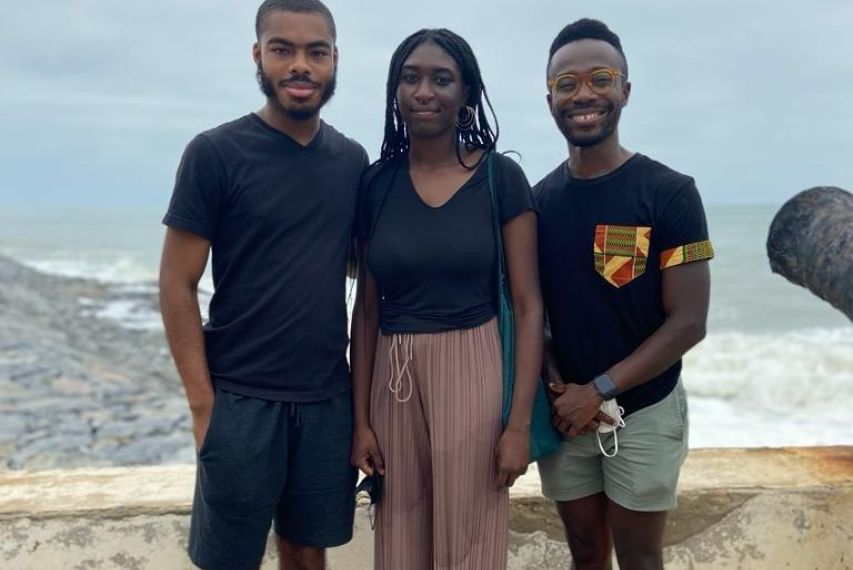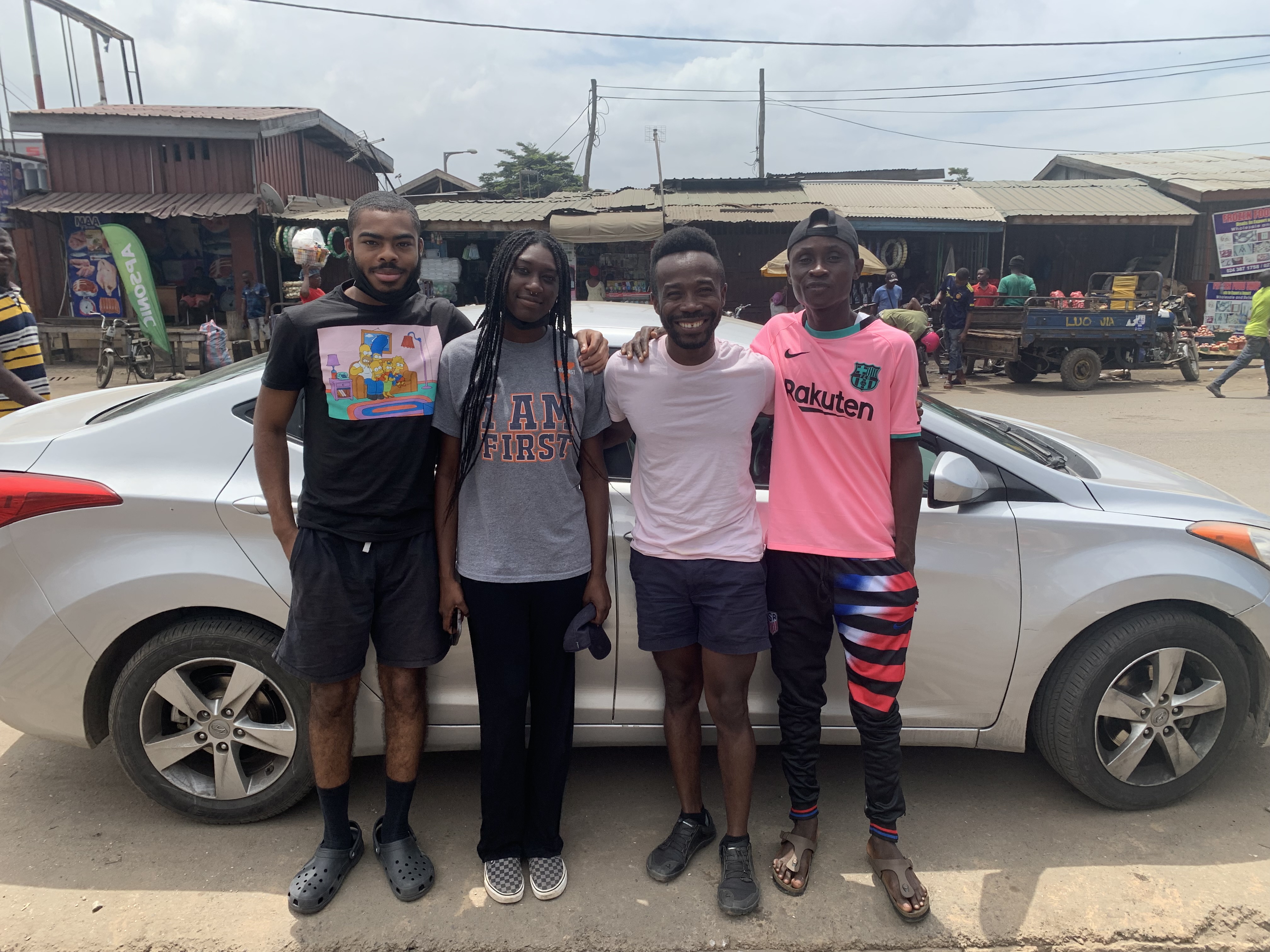Over the ten days of their summer research project, Tichara Robertson and Tyler Busch assisted Professor Otu in detailing the lives of e-waste workers and understanding the factors that influenced their decision to leave their homes in northern Ghana, outside of Kumasi, to work at a site that puts their health at risk.
International Fieldwork Brings Research to Life for Students
International Fieldwork Brings Research to Life for Students

n July 2022, two third-year students traveled to Ghana with Professor Kwame Otu for a project called “Scenes of Toxicity.”
Otu calls this process of being exposed to new realities through global travel and research “making the strange familiar and the familiar strange.” “I believe being in the field exposed them to an Africa that the classroom did not articulate quite well,” said the Professor of African American and African Studies. He said that Ghana became an entirely new classroom, adding that this is what ethnography does, “it makes you a student of multiple and vexed realities.”
The “Scenes of Toxicity” project focuses on the impacts of electronic waste on electronic-waste workers at Agbogbloshie, located in Ghana’s capital city of Accra, which has been dubbed the world's largest and most polluted electronic-waste dump.
While work at Agbogbloshie is dangerous, with reportedly high levels of lead, cadmium, antimony, PCBs, and chlorinated dioxins, the precious metals extracted from old computers and cell phones, such as copper and brass, provide livelihood for these workers.

Through conversations with an e-waste worker named Zak and his colleagues, along with visits to the Cape Coast and Elmina Slave Castles, Robertson and Busch drew connections between the lives of the enslaved of the past and those of the people who live and work at Agbogbloshie today. “We hope to reveal the continuation of exploitation of Black labor that continues in a different form in our present day,” Robertson said, adding that present-day Western conceptions of Africa are intertwined with legacies of Western influence in Africa, including that of the slave trade. These legacies, they argue, created the conditions for this kind of work.
Though they could have studied these phenomena from home, Robertson and Busch agree that it might have felt removed when mediated by textbooks. “Most of the time, we are aware of injustices around the world, such as child labor or sweatshops in other countries, but seeing an example of this firsthand made it real for us,” Busch said. Beyond the working conditions, the lack of access to adequate food and water was something that stuck with them and made them grateful for what they have. They also felt the importance of sharing these stories widely in order to potentially bring change to the workers’ conditions.
Otu has always been keen on sharing the joys of conducting ethnography with his students. He explained that very few undergraduate students have the opportunity to pursue ethnography internationally. He involved the students to allow them to have access to not only doing research beyond the U.S., but to understand a world that was truly unfamiliar and strange to them.
This research gave deeper life to the students’ coursework as African American and African Studies majors. Robertson, who is also double-majoring in Political and Social Thought, reflected that this project fits into her larger course of studies because it’s centered on inspecting the long lasting impacts of slavery, colonization, and white supremacy. She hopes to tie the project into her research for her fourth-year thesis for the Political and Social Thought Major. Busch added that the project also gave insight to his personal experience as a person of the African diaspora.
Robertson and Busch will return to Ghana with Professor Otu this upcoming summer for the second part of this three-year project. They will continue building their relationships with the workers at the e-waste dump and to do further archival research on Agbogbloshie’s history. The team will also work with Charlottesville filmmaker Darnell Lamont Walker to film the ethnographies for a documentary. The students plan to continue their education and research through graduate studies, building on the work they have done with Otu through further global research and deepening their knowledge of Black Studies.



